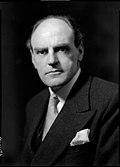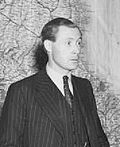| Portrait | Name
(Birth–Death) | Term of office | Party | Ministry |
|---|
| 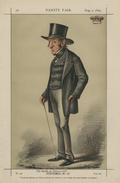 | Edward Seymour
Lord Seymour
MP for Totnes
(1804–1885) | 1 August
1851 | 21 February
1852 | Whig | Russell I |
| 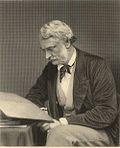 | Lord John Manners
MP for Colchester
(1818–1906) | 4 March
1852 | 17 December
1852 | Conservative | Who? Who? |
| 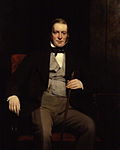 | Sir William Molesworth, Bt
MP for Southwark
(1810–1855) | 5 January
1853 | 21 July
1855 | Radical | Aberdeen
( Peelite–Whig ) |
| 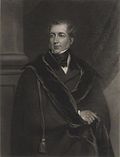 | Sir Benjamin Hall, Bt
MP for Marylebone
(1802–1867) | 21 July
1855 | 21 February
1858 | Whig | Palmerston I |
|  | Lord John Manners
MP for Leicestershire North
(1818–1906) | 26 February
1858 | 11 June
1859 | Conservative | Derby–Disraeli II |
|  | Henry FitzRoy
MP for Lewes
(1807–1859) | 18 June
1859 | 17 December
1859 | Liberal | Palmerston II |
| 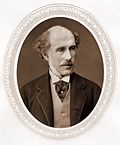 | William Cowper
MP for Hertford
(1811–1888) | 9 February
1860 | 26 June
1866 | Liberal |
| Russell II |
|  | Lord John Manners
MP for Leicestershire North
(1818–1906) | 6 July
1866 | 1 December
1868 | Conservative | Derby–Disraeli III |
| 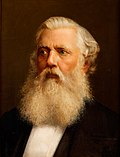 | Austen Henry Layard
MP for Southwark
(1817–1894) | 9 December
1868 | 26 October
1869 | Liberal | Gladstone I |
| 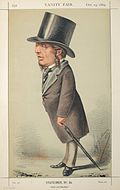 | Acton Smee Ayrton
MP for Tower Hamlets
(1816–1886) | 26 October
1869 | 11 August
1873 | Liberal |
| 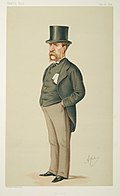 | William Patrick Adam
MP for Clackmannanshire and Kinross-shire
(1823–1881) | 11 August
1873 | 17 February
1874 | Liberal |
|  | Lord Henry Lennox
MP for Chichester
(1821–1886) | 21 March
1874 | 14 August
1876 | Conservative | Disraeli II |
|  | Gerard Noel
MP for Rutland
(1823–1911) | 14 August
1876 | 21 April
1880 | Conservative |
|  | William Patrick Adam
MP for Clackmannanshire and Kinross-shire
(1823–1881) | 3 May
1880 | 1880 | Liberal | Gladstone II |
|  | George Shaw Lefevre
MP for Reading
(1831–1928) | 29 November
1881 | 13 February
1885 | Liberal |
| 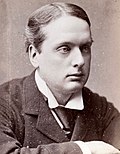 | Archibald Primrose
5th Earl of Rosebery
(1847–1929) | 13 February
1885 | 9 June
1885 | Liberal |
| 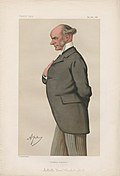 | David Plunket
MP for Dublin University
(1838–1919) | 24 June
1885 | 28 January
1886 | Conservative | Salisbury I |
|  | Albert Parker
3rd Earl of Morley
(1843–1905) | 17 February
1886 | 16 April
1886 | Liberal | Gladstone III |
|  | Victor Bruce
9th Earl of Elgin
(1849–1917) | 16 April
1886 | 20 July
1886 | Liberal |
|  | David Plunket
MP for Dublin University
(1838–1919) | 5 August
1886 | 11 August
1892 | Conservative | Salisbury II |
|  | George Shaw Lefevre
MP for Bradford Central
(1831–1928) | 18 August
1892 | 10 March
1894 | Liberal | Gladstone IV |
| 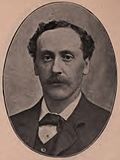 | Herbert Gladstone
MP for Leeds West
(1854–1930) | 10 March
1894 | 21 June
1895 | Liberal | Rosebery |
|  | Aretas Akers-Douglas
MP for St Augustine's
(1851–1926) | 4 July
1895 | 11 August
1902 | Conservative | Salisbury
(III & IV)
( Con.–Lib.U. ) |
|  | Robert Windsor-Clive
14th Baron Windsor
(1857–1923) | 11 August
1902 | 4 December
1905 | Conservative | Balfour
( Con.–Lib.U. ) |
|  | Lewis Vernon Harcourt
MP for Rossendale
(1863–1922) | 10 December
1905 | 3 November
1910 | Liberal |
Campbell-Bannerman
|
Asquith
(I–III) |
|  | William Lygon
7th Earl Beauchamp
(1872–1938) | 3 November
1910 | 6 August
1914 | Liberal |
| 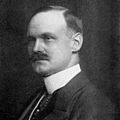 | Alfred Emmott
1st Baron Emmott
(1858–1926) | 6 August
1914 | 25 May
1915 | Liberal |
|  | Lewis Vernon Harcourt
MP for Rossendale
(1863–1922) | 25 May
1915 | 10 December
1916 | Liberal | Asquith Coalition
( Lib.–Con.–Lab. ) |
|  | Sir Alfred Mond, Bt
MP for Swansea West
(1868–1930) [a] | 10 December
1916 | 1 April
1921 | Liberal | Lloyd George
(I & II)
( Lib.–Con.–Lab. ) |
| 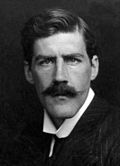 | David Lindsay
27th Earl of Crawford
(1871–1940) | 1 April
1921 | 19 October
1922 | Conservative |
|  | Sir John Baird, Bt
MP for Ayr Burghs
(1874–1941) | 31 October
1922 | 22 January
1924 | Conservative | Law |
| Baldwin I |
| 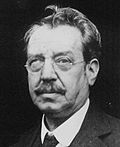 | Fred Jowett
MP for Bradford East
(1864–1944) | 22 January
1924 | 3 November
1924 | Labour | MacDonald I |
| 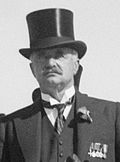 | William Wellesley Peel
2nd Viscount Peel
(1867–1937) | 10 November
1924 | 18 October
1928 | Conservative | Baldwin II |
|  | Charles Vane-Tempest-Stewart
7th Marquess of Londonderry
(1878–1949) | 18 October
1928 | 4 June
1929 | Conservative |
|  | George Lansbury
MP for Bow and Bromley
(1859–1940) | 7 June
1929 | 24 August
1931 | Labour | MacDonald II |
|  | Charles Vane-Tempest-Stewart
7th Marquess of Londonderry
(1878–1949) | 25 August
1931 | 5 November
1931 | Conservative | National I
( N.Lab.–Con.–Lib.N.–Lib. ) |
|  | William Ormsby-Gore
MP for Stafford
(1885–1964) | 5 November
1931 | 16 June
1936 | Conservative | National II
( N.Lab.–Con.–Lib.N.–Lib. ) |
National III
( Con.–N.Lab.–Lib.N. ) |
| 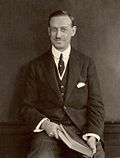 | James Stanhope
7th Earl Stanhope
(1880–1967) | 16 June
1936 | 27 May
1937 | Conservative |
| 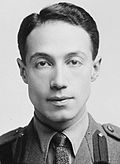 | Sir Philip Sassoon, Bt
MP for Hythe
(1888–1939) | 27 May
1937 | 7 June
1939 | Conservative | National IV
( Con.–N.Lab.–Lib.N. ) |
| 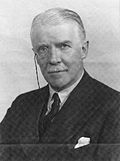 | Herwald Ramsbotham
MP for Lancaster
(1887–1971) | 7 June
1939 | 3 April
1940 | Conservative |
Chamberlain War
( Con.–N.Lab.–Lib.N. ) |
|  | Herbrand Sackville
9th Earl De La Warr
(1900–1976) | 3 April
1940 | 18 May
1940 | National Labour |
|  | George Tryon
1st Baron Tryon
(1871–1940) | 18 May
1940 | 3 October
1940 | Conservative | Churchill War
(All parties) |
|




































